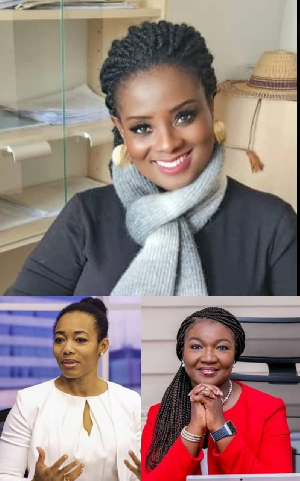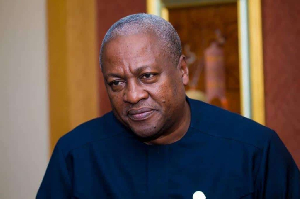
Being an ardent critic of the National Democratic Congress and its leader, President-Elect John Dramani Mahama, matters related to the NDC ought not to find expression in my thoughts.

However, this write-up is informed by what usually happens when political parties come to power. The tendency to select the same old persons excluding younger and agile men and women will invariably give a stale look to the President-elect’s government and might deny it of dynamic and innovative ideas.
Also, of particular interest to me is the extent to which Ghanaian women are allowed to participate in our body politic. Women’s participation in politics helps advance gender equality and affects both the range of policy issues that get considered and the types of solutions that are proposed. Research indicates that whether an appointee is male, or female has a distinct impact on their policy priorities.
There is also a strong evidence that as more women are elected or appointed into office, there is a corollary increase in policymaking that emphasizes quality of life and reflects the priorities of families, women, and ethnic and racial minorities.
The above position zeroes down to the objective of this article which is to raise my voice to the call to include some individuals in the administration of the next NDC government.
It is an open secret that Victoria Hamah, Joyce Bawah Moqtari and Zanetor Rawlings have elicited very critical commentary from me over the past years. I have been very critical of these women over the years for one reason or the other.
Notwithstanding my blunt opinions about them, however controversial or otherwise, I believe these women should be engaged to play key roles in the affairs of the Mahama Presidency.
While we cannot discard their loyalties to their party and the President-Elect, John Mahama, there are many compelling reasons why these women ought not to be sidestepped in Mahama’s appointments.
In my opinion, Professor Naana Jane Opoku Agyemang having broken the jinx as the first-ever female Vice President of the Republic of Ghana, has given impetus to the fact that women are being recognized in our political system in an unprecedented manner.
Yet Prof Jane’s historical feat will not be significantly meaningful if the government of President-Elect John Mahama does not make a deliberate consideration to include young women. These demographics have particularly been historically marginalised within the national political frontiers.
Therefore, including these women in his government would not only further enhance the importance he attaches to gender-related issues but also improve the participation of women in our politics. It will further strengthen his perceived belief in Affirmative Action, especially with his appointment of Prof Jane as his vice-presidential candidate.
As I have observed, through her organisation POWA, Vicky Hamah has continued to engage in public discourse giving critical commentary on issues. She has undeniably earned my respect and admiration for her tenaciousness to improve herself despite the challenges that confronted her political career.
I also followed a Ghanaweb publication about her participation in an EU-funded scholarship programme via an Erasmus+ Mobility credit exchange programme at Mendel University in Brno in the Czech Republic as part of her PhD programme at the University of Ghana Business School—an obvious divorce from the predominant public narrative that smeared her political appointment as beauty with no brains.
I have on some occasions observed with awe her coherent articulation on Paul Adom-Otchere’s Good Evening Ghana show and it's undeniable, that Vicky Hamah has been a victim of a society not ready for the beautiful and bold women. Thus, I thought that society was too quick to judge her. Her zeal against all odds for me marks a pivotal quality of leadership.
Zanetor and Joyce equally have strong backgrounds which would go a long way in helping them deliver on their mandates if appointed into office. Despite both of them having overt political privileges through the patronages of President Rawlings and President Mahama respectively, they have both managed to improve beyond the inherited nepotic privileges. Dr Zanetor's decisive parliamentary victory in the just-ended election could not be from the remanence of the hegemonic influence of her late father.
These three women in my opinion have exhibited the character sufficient to be placed in positions to serve Ghana and to inspire other young women to avail themselves to politics.
It must, therefore, not be the ‘business as usual’ attitude exhibited over the years by appointing authorities. Young women must be included in the highest echelon of political leadership! It is in line with the contemporary global agenda, it is in line with the tenets of our democratic values and it will give true meaning to our 67 years of self-reliance.
By: P.K.Sarpong, Whispers from the Corridors of the Thinking Place.